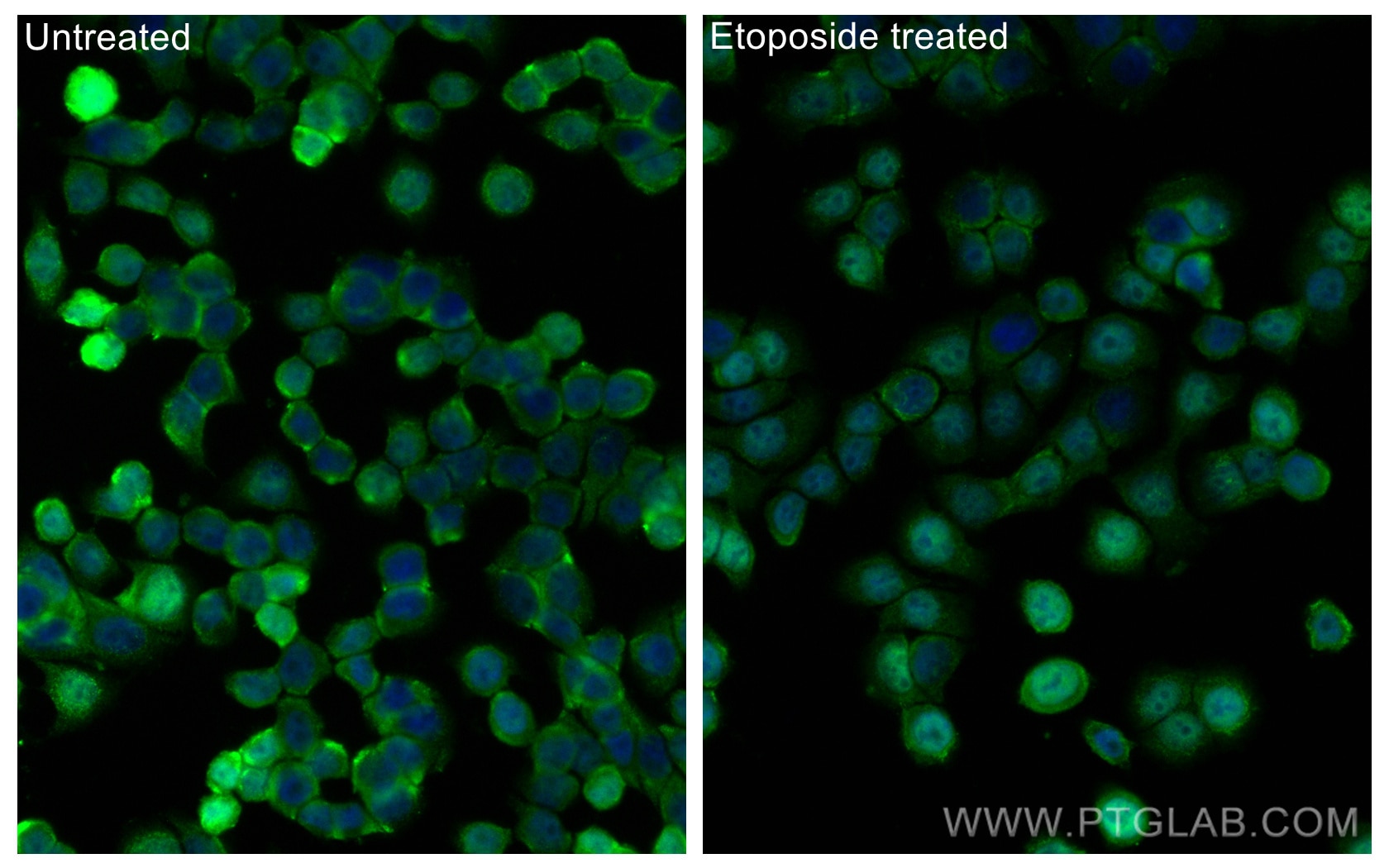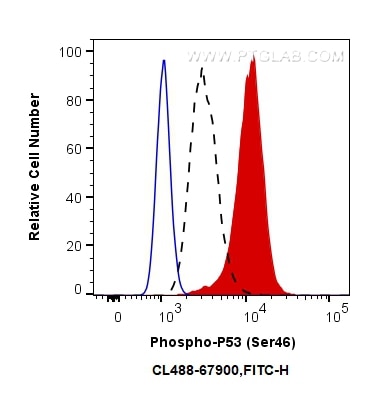Anticorps Monoclonal anti-Phospho-P53 (Ser46)
Phospho-P53 (Ser46) Monoclonal Antibody for IF/ICC, FC (Intra)
Hôte / Isotype
Mouse / IgG1
Réactivité testée
Humain
Applications
IF/ICC, FC (Intra)
Conjugaison
CoraLite® Plus 488 Fluorescent Dye
CloneNo.
1D10A12
N° de cat : CL488-67900
Synonymes
Galerie de données de validation
Applications testées
| Résultats positifs en IF/ICC | cellules HT-29 traitées à l'étoposide, |
| Résultats positifs en FC (Intra) | UV treated HT-29 cells, |
Dilution recommandée
| Application | Dilution |
|---|---|
| Immunofluorescence (IF)/ICC | IF/ICC : 1:50-1:500 |
| Flow Cytometry (FC) (INTRA) | FC (INTRA) : 0.25 ug per 10^6 cells in a 100 µl suspension |
| It is recommended that this reagent should be titrated in each testing system to obtain optimal results. | |
| Sample-dependent, check data in validation data gallery | |
Informations sur le produit
CL488-67900 cible Phospho-P53 (Ser46) dans les applications de IF/ICC, FC (Intra) et montre une réactivité avec des échantillons Humain
| Réactivité | Humain |
| Hôte / Isotype | Mouse / IgG1 |
| Clonalité | Monoclonal |
| Type | Anticorps |
| Immunogène | Peptide |
| Nom complet | tumor protein p53 |
| Masse moléculaire calculée | 44 kDa |
| Poids moléculaire observé | 53 kDa |
| Numéro d’acquisition GenBank | BC003596 |
| Symbole du gène | P53 |
| Identification du gène (NCBI) | 7157 |
| Conjugaison | CoraLite® Plus 488 Fluorescent Dye |
| Excitation/Emission maxima wavelengths | 493 nm / 522 nm |
| Forme | Liquide |
| Méthode de purification | Purification par protéine G |
| Tampon de stockage | PBS with 50% glycerol, 0.05% Proclin300, 0.5% BSA |
| Conditions de stockage | Stocker à -20 °C. Éviter toute exposition à la lumière. Stable pendant un an après l'expédition. L'aliquotage n'est pas nécessaire pour le stockage à -20oC Les 20ul contiennent 0,1% de BSA. |
Informations générales
P53 is a 53 kDa protein that is activated in response to alteration of normal cell homeostasis, including DNA damage, nutrient starvation, heat shock, virus infection, pH change, hypoxia, and oncogene activation. P53 maintains genetic stability by regulating different processes, such as cell-cycle arrest, DNA synthesis and repair, programmed cell death, and energy metabolism. In non-stressed conditions these proteins bind p53, ubiquitylate it and target it for degradation by the proteasome. In stressed conditions the function of the MdM2-MdM4 complex is blocked by phosphorylation, protein-binding events and/or enhanced degradation. (PMID: 19935675, PMID: 24379683)
Protocole
| Product Specific Protocols | |
|---|---|
| IF protocol for CL Plus 488 Phospho-P53 (Ser46) antibody CL488-67900 | Download protocol |
| Standard Protocols | |
|---|---|
| Click here to view our Standard Protocols |



